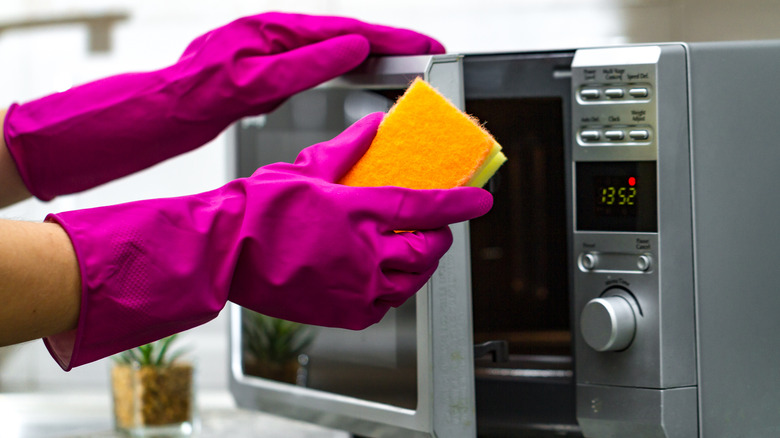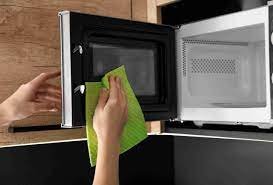Microwaves are a staple in most kitchens, offering a quick and convenient way to heat food. However, they can sometimes emit strange odors that are puzzling and unpleasant. At TheKitchenApplianceDad.com, we understand how annoying this can be, so let’s dive into the common causes of these weird microwave smells and provide some practical solutions to help you resolve them.
1. Food Residue and Spills
One of the most common sources of bad smells in microwaves is leftover food residue and spills. When food particles are not cleaned out, they continue to cook each time you use the microwave, eventually burning and causing a persistent odor.
2. Plastic and Packaging Materials
Sometimes, the use of non-microwave-safe plastics or packaging materials can lead to strange smells. These materials can melt or release chemicals when heated, leaving a lingering chemical or burning plastic smell.
3. Electrical Issues
In rare cases, a weird smell could be a sign of an electrical issue within the microwave. This could be due to faulty wiring or components that are overheating, which can release a burning or metallic smell.

Daily Maintenance:
To prevent smells, it’s important to wipe down the interior of your microwave regularly. Use a damp cloth to clean the inside walls, ceiling, and turntable after each use.
Deep Cleaning Method:
For a thorough clean, you can use a microwave-safe bowl filled with a mixture of water and lemon juice or vinegar. Microwave this solution for several minutes until it boils and steam forms on the window. Let it sit for about 15 minutes before opening the door. The steam will help loosen any stuck-on food, and the lemon or vinegar will help neutralize odors. Afterward, wipe the interior with a clean cloth.
Baking Soda:
Place an open box of baking soda inside the microwave when not in use. Baking soda is excellent for absorbing odors and can help keep your microwave smelling fresh.
Coffee Grounds:
A bowl of unused coffee grounds can also help absorb unpleasant odors. Leave it in the microwave overnight and remove it before using the appliance.
Activated Charcoal:
Activated charcoal is another effective odor absorber. You can purchase an activated charcoal odor absorber and place it inside the microwave to help remove persistent smells.
Cover Food:
Always cover food with a microwave-safe lid or microwave-safe plastic wrap to prevent splatters. This will help keep the interior clean and free from food particles that can decay and produce odors.
Use Appropriate Containers:
Ensure you are using microwave-safe containers to prevent chemicals or plastics from melting and creating bad smells. Containers that are labeled as microwave safe are designed to withstand the heat without releasing harmful substances.
Regular Inspection and Maintenance:
Keep an eye on the functioning of your microwave. If you notice any sparks, unusual noises, or continued odd smells even after cleaning, it may be time to call a professional or consider replacing the unit. Regular maintenance can help catch issues before they lead to more serious problems.
If you have tried all the above solutions and the weird smells persist, it could indicate a more serious issue, such as an electrical problem. In this case, it’s best to consult with a professional technician who can safely diagnose and repair your microwave. Continuing to use a microwave that may have electrical issues can be dangerous.
By following these tips from TheKitchenApplianceDad.com, you can effectively address weird microwave smells and ensure your microwave remains a clean and functional part of your kitchen. Remember, a clean microwave is not only about removing odors—it’s also about maintaining the appliance’s efficiency and longevity.

